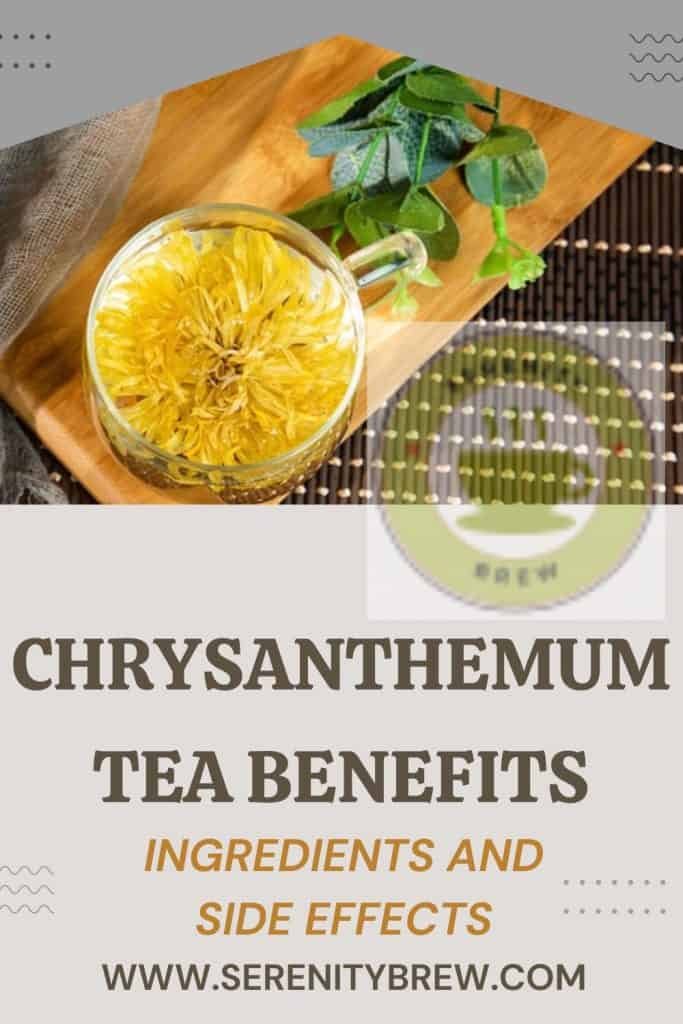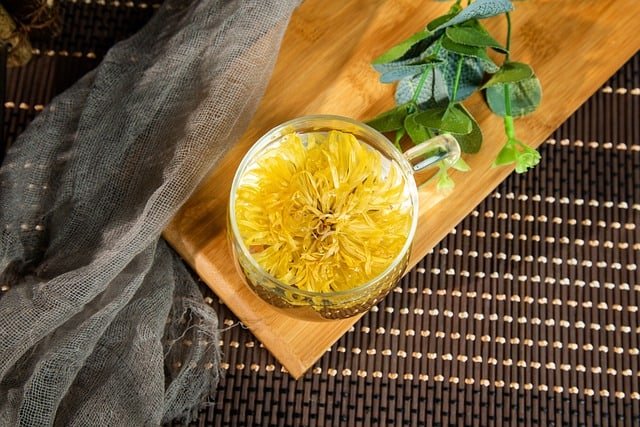
It is a drink used since ancient times to alleviate many ills, it is part of traditional Chinese medicine. There are several studies that support the number of properties it has, although it is not the first option in medical treatments. In this post we will talk about the benefits of chrysanthemum tea , ingredients and side effects.
Chrysanthemum tea is made from the dried flowers of chrysanthemums. Its aroma is delicate, somewhat floral, light and refreshing. However, you have to be careful with its consumption because it can have side effects. If you are allergic to ragweed and daisies, avoid eating it.
Chrysanthemum Tea Benefits
Among the most notable benefits are the following.
relieves inflammation
When there is inflammation in the body, it is often associated with diseases such as heart, brain, joint and muscle diseases. There are certain substances in this tea that fight inflammation, including: chrysanol 1, octulosonic acid, and other elements. There are even studies that indicate that they reduce the risk of suffering from serious diseases.
Against heat rash
Among the benefits of chrysanthemum tea is relieving heat rash. Traditional Chinese medicine holds that this occurs when the body’s temperature becomes unbalanced. If you present these rashes, prepare a tea with two tablespoons of chrysanthemum flowers, a mint leaf and a liter of boiling water. Once it boils, let it rest for a few minutes and strain it. It is advised to drink it every two or three hours until the rash disappears.
Chrysanthemum tea benefits. Improve visual problems
The chrysanthemum tea It could be effective in treating certain eye problems and also improves visual acuity. For a long time, this plant has been used to treat blurred vision, watery eyes, and eye pain. If you are one of those who like to read or work for a long time on the computer, try drinking chrysanthemum tea.
bone problems
Other benefits of chrysanthemum tea is that it helps combat bone problems, takes care of the bones and prevents osteoporosis from appearing. In certain studies carried out on this plant, it was determined that it intervenes in the regulation of bone mass. Although there are still studies to be done, it is possible that in the future it could serve as an effective therapeutic agent.
Keeps the skin healthy
The chrysanthemum tea properties can be used for aesthetic purposes, they can favor the reduction of spots on the skin, because it regulates melanin. In addition, there are studies that show that the plant helps reduce symptoms of skin problems, such as those caused by atopic dermatitis. It can even be effective in fighting pimples and acne.
Provides cardiovascular health
Supplements of this type of plant improve blood flow and reduce hair problems. In studies carried out in China and Japan, they say that chrysanthemum levels blood pressure and relieves symptoms associated with it, such as: dizziness, headaches, insomnia. In addition, its properties are usually effective in the treatment of angina pectoris, although more studies are required in this regard.
Treat the common cold
Chrysanthemum tea has been used in traditional Chinese medicine for the common cold, which is accompanied by fever, headache, and swollen glands. The chrysanthemum is effective in reducing fever, for this pour a liter of boiling water in a mixture of chrysanthemum flowers dried, mint and honeysuckle flowers. Then you have to let the preparation rest until it reaches room temperature. Drink it every two hours to relieve flu symptoms.
Other benefits of chrysanthemum tea
ThisteaIt has also been used for other medicinal purposes, although there is not enough research to support this. It continues to be widely consumed in many countries, especially Western and Eastern ones.
- It is an excellent drink to lose weight, due to its caloric intake and antioxidants. Although by itself it does not work miracles, so it must be included in a healthy diet.
- Due to its aroma it is used to regulate blood pressure and relaxation. It is very good for relieving symptoms associated with stress.
- Relieves fever.
- Promotes concentration and activates the mind. In experiments carried out with animals it was determined that it is a good protector of the brain.
Contraindications of chrysanthemum tea
If the consumption of chrysanthemum tea is moderate, there should be no problem with side effects. However, it is not advisable for those who suffer from allergies to certain plants, such as daisies and ragweed. On the other hand, it should not be consumed when you have skin rashes or respiratory problems.
It is also likely that with certain medications you will have a reaction. In this sense, if the person has prescribed treatments with anticancer, anti-inflammatory drugs, etc., they should consult their doctor. It is not recommended to drink it if you have the following conditions: diabetes, pregnancy and lactation, skin sensitivity and hypertension.
On the other hand, when chrysanthemum tea is drunk in excess, you can suffer from sensitivity to bright light, therefore, if it is ingested frequently, you must take measures against the sun, such as the use of sunscreen and dark glasses.
Chrysanthemum tea benefits. Preparation

In health food stores you can often find chrysanthemum tea to prepare. However, it can be prepared using the dried flowers of the plant in the following manner. Firstly, the ingredients are:
- A cup of water.
- A tablespoon of dried chrysanthemum flowers.
To prepare it, we apply the following steps:
- Boil the cup of water, when it is about to boil add the flowers.
- Then, let it rest for about 10 minutes off the heat.
- Strain and drink. You can drink up to two cups a day.
The amount of tea that should be drunk is not yet determined by scientific evidence, this amount may depend on the person’s age, health and other aspects. In this sense, it is best to consult your doctor if you intend to consume it regularly.
